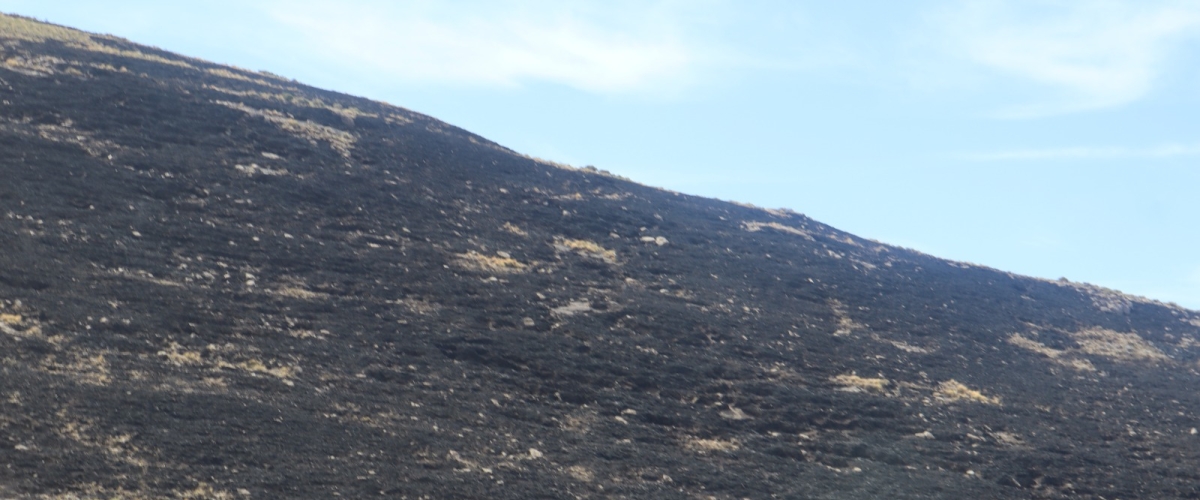
By Lineo Mabekebeke
Rangeland burning is common in Lesotho during the dry season, though it is illegal. This practice has negative consequences as biodiversity is lost, and human well-being is negatively affected. Former Park manager Thabo Molahlehi says every year in the winter season, from May to July, rangelands are burned at an alarming rate in Lesotho, and at least sources of fire have been identified: herders and cigarette stumps disposed of at the roadside by people passing by. It is also a common practice for herders in Lesotho to burn rangelands in pursuit of green forage for livestock.
The Department of Environment (2009) in Lesotho has shown in the Convention on Biological Diversity that vegetation in Lesotho has endured tremendous stress from key disturbances including uncontrolled fire, overgrazing, and encroachment by invasive plants, settlements, and cultivation. These have transformed the environment and the overall trend in the status of vegetation, mammals, reptiles, and birds has been observed to be declining.
According to the effects of fire on ecosystem study by Nyakallo Pheko, the national parks have lost a lot of valuable vegetation due to the burning of rangelands. Some species of vegetation are believed to have become extinct, and unprescribed fire, among other factors, is the probable cause of extinction. Many species of wild animals are no longer seen in the country, some are believed to have emigrated to South Africa, while some are believed to have died out due to fires.
However, it is indicated that fire has a low effect on highly mobile animals as they can move away from the burning area or the burned area but has an effect on less mobile and flightless animals and organisms as they have difficulty moving out of the affected area.
A member of the community Mrs ‘Maliepollo Mofubetsoana said the issue now is about finding out if the real problem is the fire itself or the management of fire. She emphasized that effective fire management is crucial not only for safeguarding communities and their homes but also for protecting critical infrastructure and enhancing our understanding and capability in fire control.
The Lesotho Second National Communication to the Conference of Parties (COP) of the United Nations Framework Convention on Climate Change (UNFCCC) report states that one of the most pressing environmental concerns in Lesotho is the deterioration of land (LMS 2013). According to this report, wildfires are one of the contributors to this aggravation, along with deforestation, soil erosion, and overgrazing. For this reason, fires have not been used in the management of rangeland ecosystems.
Fire in Lesotho rangelands has been legally prohibited (Government of Lesotho, 2008). As a result, no one is allowed to start fires. The exception is in selected protected areas where managed fire is used as a tool to reduce the accumulation of moribund material and to develop fire breaks around and inside these areas. The department has therefore resorted to other methods like clearing land strips or building stone-lines to establish fire breaks.
Rangeland management in Lesotho holds paramount importance, not just for the ecological balance of the region but for the preservation of biodiversity. These vast stretches of land are not just barren expanses; they are teeming with life, and home to a myriad of species. Ensuring their proper care and sustainable use will not only benefit the environment but will also safeguard the intricate web of life they support.
The author is a Journalist at the Public Eye Newspaper in Lesotho.





